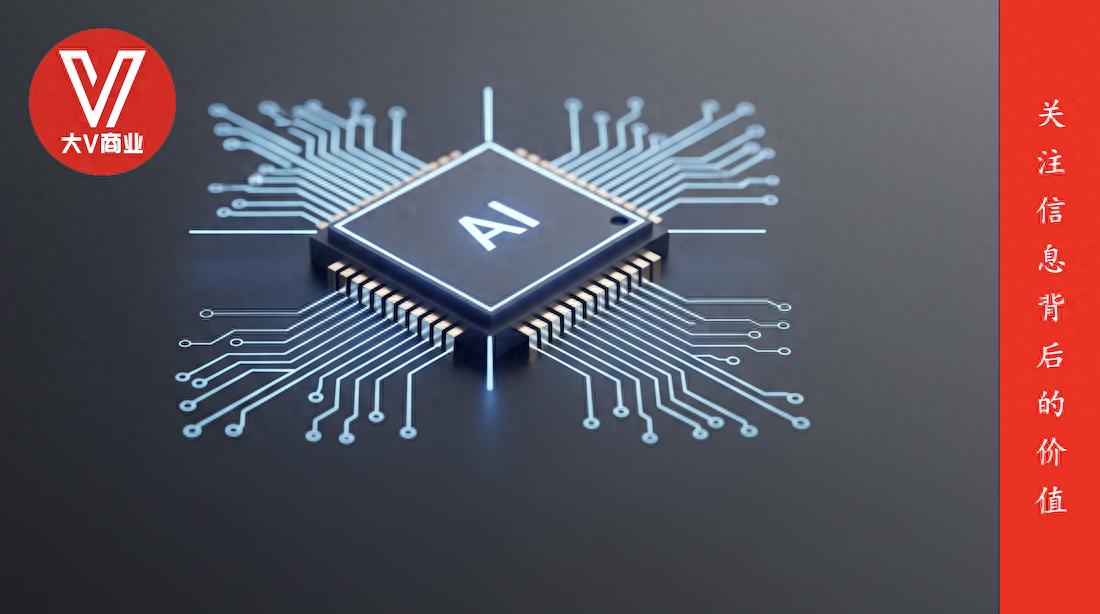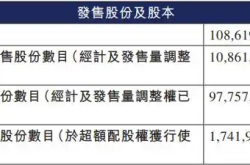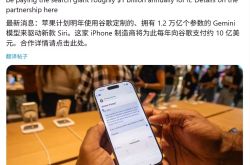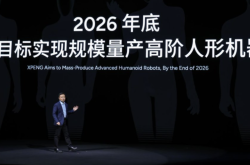Who is in charge of AI in China's tech giants?
![]() 07/07 2025
07/07 2025
![]() 534
534

Sigma Tower on the North Fourth Ring Road in Beijing was once jokingly called the building with the highest IQ density in the country and was also the office address of Microsoft Research Asia.
Looking back at the current layout of China's major internet companies in the AI field, almost all stories begin here.
From here emerged various great minds who would later take charge of AI in tech giants: Zhang Yaqin, Zhou Jingren, Sun Jian, He Kaiming, Tang Xiaou, Wu Yonghui, Zhang Zhengyou, and others.
The competition among AI leaders in tech giants, who are teachers, students, and fellow disciples of each other, has also evolved into a contest between teachers and students, as well as among fellow disciples.
▌1. Starting from MSRA
The landmark event marking AI's transition from an advanced technology to practical applications was when machine recognition accuracy first surpassed that of humans.
At the 2015 ImageNet competition, the Microsoft Research Asia team, with its 152-layer deep residual network, achieved an error rate that surpassed human-level performance for the first time, becoming an important milestone in the history of deep learning development.
It was He Kaiming, who was still at Microsoft Research at the time, who achieved this feat.
Just a few days ago, He Kaiming joined Google DeepMind, causing shockwaves in the industry. With his pivotal position in the field of AI research, his move from academia back to the corporate world has also filled the industry with anticipation for the future.
He Kaiming's resume is also quite interesting, as the people and experiences around him almost outline a complete map of China's AI landscape.
Starting from He Kaiming, we can find connections among all the founders or co-founders of the AI Four Dragons from the previous wave.
He once interned at Microsoft Research Asia under the tutelage of Sun Jian, the chief scientist of Megvii Technology; during his graduate studies at The Chinese University of Hong Kong, he was a student of Tang Xiaou, the founder of SenseTime Technology.
The team that won the ImageNet competition with He Kaiming included his mentor Sun Jian and doctoral students jointly cultivated by Microsoft Research Asia: Zhang Xiangyu from Xi'an Jiaotong University and Ren Shaoqing from the University of Science and Technology of China. Zhang Xiangyu is currently the chief scientist at LeapStar AI, while Ren Shaoqing was once a co-founder of Momenta and is now the head of intelligent driving at NIO.
Unfortunately, Sun Jian and Tang Xiaou passed away due to illness in 2022 and 2023, respectively, at the young ages of 45 and 55.
Starting from Microsoft Research Asia, one can also trace the footsteps of today's AI leaders in major tech giants, who almost all met each other around the year 2005 and then went their separate ways.
Alibaba Cloud's Wang Jian joined Microsoft Research Asia in 1999, became the executive deputy director in 2004, and left in 2008. The two core figures of ByteDance AI Lab, Ma Weiying and Li Hang, also joined Microsoft Research Asia in 2001. Not to mention Zhang Yaqin, the former president of Baidu and an important proposer of Baidu's AI strategy, who was the director of Microsoft Research Asia and one of the main organizers of MSRA.
The year He Kaiming won the ImageNet competition, Zhang Yaqin had just left Microsoft to join Baidu. On November 30, 2016, at the first Baidu Cloud Intelligence Summit, Zhang Yaqin represented Baidu in proposing the ABC strategy, which integrates AI (Artificial Intelligence), Big Data, and Cloud Computing, marking the beginning of Baidu's AI era.
▌2. Baidu and Alibaba, successors to MSRA
During Zhang Yaqin's tenure as director of Microsoft Research Asia, Wang Jian served as the executive deputy director.
Their work experiences at MSRA, in a sense, also contributed to Baidu and Alibaba becoming the two new "Huangpu Military Academies" for domestic AI.
Zhang Yaqin's joining of Baidu was not just significant for promoting the establishment of the AI business system. Since then, Baidu has attracted many top talents, including Lin Yuanqing, Wang Jin, Yu Kai, Jing Kun, Wu Hua, Xu Wei, and others. After leaving Baidu, these individuals have continued to delve deeply into AI, some becoming the leaders of AI in tech giants, and others devoting themselves to AI startups.
The current AI leader at Alibaba is Zhou Jingren, who also once worked at Microsoft. Zhou Jingren obtained his Ph.D. in computer science from Columbia University in the United States in 2004 and subsequently joined Microsoft as a research and development partner.
In 2016, Zhou Jingren officially announced his joining of the Alibaba Group, responsible for the Alibaba DAMO Academy's Intelligent Computing Laboratory and other work, serving as the chief scientist of Alibaba Cloud, leading the R&D teams in both China and the United States at Alibaba Cloud, and overall responsible for the scientific research work of Alibaba Cloud's big data platform and AI research at iDST (Institute of Data Science Technology), involving large-scale machine learning, speech, natural language, image, and video processing technologies.
He was promoted in an internal organizational adjustment at Alibaba in 2020; in December 2022, he officially took on the role of CTO of Alibaba Cloud Intelligence and concurrently served as the vice president of the DAMO Academy. At the same time, Zhou Jingren is also the head of Alibaba's Tongyi Qianwen.
In March 2021, the DAMO Academy released M6, China's first multimodal large model with 100 billion parameters, with Zhou Jingren as the project leader at the time.
Before and after the establishment of the DAMO Academy, Alibaba has also attracted many top talents and scientists from the industry to join.
On the evening of March 18, 2019, Alibaba's DAMO Academy announced through its Zhihu account that Jia Yangqing, the former Facebook AI scientist, had officially joined the company as the vice president of technology, leading the research and development of the big data computing platform.
Jia Yangqing once commented on the DAMO Academy:
“I have many like-minded friends at Alibaba, such as Xiaofeng Ren, who also studied for his Ph.D. at Berkeley (and was previously the chief researcher at Amazon), and Gai Kun, who struggled together with me at Tsinghua University (a technical expert at Alibaba known as Jingshi), among others.”
Among them, Ren Xiaofeng joined Alibaba in June 2017 from Amazon, where he was a Senior Principal Scientist. At Alibaba, he served as the vice president and chief scientist of the artificial intelligence core team iDST.
At that time, another vice president of iDST, Hua Xiansheng, also came from Microsoft Research Asia. After obtaining his Ph.D. in science in 2001, he joined MSRA the same year and went to the United States in 2011 to serve as the chief research and development director of Microsoft Bing search engine.
▌3. When Baidu and Alibaba export talent to the industry
As the only two companies that invested in AI the earliest, Baidu and Alibaba attracted many top AI talents to join, but a decade later, they also began to supply talent to the industry.
Lin Chenxi, the co-founder of Yitu Technology, joined Microsoft Research Asia in 2005 and met his mentor Wang Jian. Three years later, he followed Wang Jian to join Alibaba Cloud.
There is also Gai Kun, an Alibaba colleague and Tsinghua alumnus of Jia Yangqing, who is now another heavyweight figure in China's AI field.
After obtaining his Ph.D. in 2011, Gai Kun joined Alimama as a member of the first batch of the "Ali Star" program and later rose to the position of senior director of the Precision Display Technology Department at Alimama, with the nickname "Jingshi" and known as an "algorithm genius" by the outside world.
In the year of his employment, he proposed the piecewise linear model MLR, significantly improving the accuracy of CTR estimation; since then, he has long focused on the field of CTR estimation in recommendation systems and published many research results, from DIN, DIEN to SIM based on user behavior sequences.
In 2020, Gai Kun joined Kuaishou, using the pseudonym "Yu Yue" to avoid non-compete agreements, but in 2022, he was sued by Alibaba for violating non-compete agreements and compensated the company with 2 million yuan.
On July 6, 2024, at the World Artificial Intelligence Conference held in Shanghai, Kuaishou released the Kerling large model, and it was at that conference that Gai Kun said those classic words:
“My name is Gai Kun, and everyone at Kuaishou calls me Yu Yue.”
Another large model leader at Kuaishou, Zhang Di, also came from Alibaba, where he served as a senior technical expert P9 and was deeply involved in the technical evolution of the search and advertising business towards deep learning.
In addition to Kuaishou, ByteDance also has many AI technical talents from Alibaba.
For example, Zhou Chang. In October 2024, it was confirmed that Zhou Chang, the technical leader of Alibaba's Tongyi Qianwen, had joined ByteDance.
Public information shows that Zhou Chang obtained his Ph.D. in computer software and theory from Peking University in 2017 and subsequently joined Alibaba, with the nickname "Zhong Huang". He and his team have launched a series of language models and multimodal models and led the ultra-large-scale multimodal pre-trained model M6, achieving breakthroughs in parameter scale and low-carbon training.
Speaking of M6, Yang Hongxia cannot be overlooked.
At the beginning of 2023, Yang Hongxia, the former leader of Alibaba's M6, joined ByteDance AI Lab to participate in the research and development of large language generation models.
She graduated from Nankai University and the Department of Statistical Science at Duke University, where she studied under the renowned statistician David Dunson. She once led the evolution of M6 from 10 billion to 100 billion and then to 1 trillion parameters and led the landing and development of cognitive intelligence technology.
Baidu has also supplied many AI talents to the industry.
After Zhang Yaqin joined Baidu, top AI talents such as Yu Kai and Wang Jin successively joined the company. After leaving Baidu, these individuals continued to be active in tech giants or in the entrepreneurial field.
Many core figures at ByteDance also come from Baidu.
The relevant persons in charge of ByteDance's large models, Zhu Wenjia, Yang Zhenyuan, and Hong Dingkun, all come from the Baidu system:
Zhu Wenjia served as the chief architect of Baidu's search department, joined ByteDance in 2015, and established the ByteDance large model team in 2023;
Hong Dingkun previously served as the technical manager of Baidu Post Bar, joined ByteDance in 2014, and in November 2023, took on the role of technical leader of the newly established AI department Flow, leading the development of the AI application layer and launching products such as Doubao and Cici;
Yang Zhenyuan joined Baidu in 2005 and left in 2014, where he served as the deputy director of large search in charge of search architecture; in the same year, he joined ByteDance to lead the recommendation algorithm and data platform.
Tencent's earliest AI establishment also has close ties with Baidu.
In 2016, Yao Xing took the lead in establishing Tencent AI Lab and the following year recruited Zhang Tong from Baidu to serve as the director of AI Lab.
Zhang Tong is an expert in the field of machine learning, holding a master's and Ph.D. from Stanford University. He has served as a tenured professor at Rutgers University, a researcher at IBM Research, and the chief scientist at Yahoo Research, with research directions covering computer vision, speech recognition, natural language processing, and machine learning, among others.
Before joining Tencent, Zhang Tong served as the vice president of Baidu Research and the head of the Big Data Laboratory.
▌4. Top AI talents keep 'flowing'
ByteDance AI Lab was established in 2016 and was initially led by Ma Weiying, the former executive deputy director of Microsoft Research Asia. After Ma Weiying left ByteDance in mid-2020, Li Hang took over the responsibility.
Li Hang once served as a researcher at NEC Central Research Laboratories in Japan, a senior researcher and principal researcher at Microsoft Research Asia, and the director of Huawei Technologies' Noah's Ark Lab.
Li Hang's position change began on February 21, 2025: Wu Yonghui, the former vice president of Google DeepMind, joined ByteDance and took on the role of head of basic research for the large model Seed.
After Wu Yonghui joined in February 2025, Li Hang began reporting to him, and currently, Li Hang has retired and been re-employed as a consultant.
Wu Yonghui was an important contributor to Google's large model Gemini. After the merger of Google Brain and DeepMind in 2023, Wu Yonghui participated in the research and development of Gemini, and the Gemini 1.5 paper shows him as one of the core contributors.
ByteDance also recently underwent a personnel adjustment: Qiao Mu, the head of the search large model, was dismissed, and Qiao Mu reported to Wu Yonghui.
After Zhang Tong left, Tencent AI Lab was taken over by Zhang Zhengyou. Before joining Tencent, Zhang Zhengyou worked at Microsoft and Microsoft Research for up to 20 years. During his time at Tencent, he led the establishment of the Robotics X laboratory, focusing on advancing research on the next generation of robots in the field of human-robot collaboration.
On May 15, 2017, Dr. Jia Jiaya, a tenured professor at The Chinese University of Hong Kong, joined Tencent YouTu Lab. As an outstanding scientist, Jia Jiaya is responsible for research in computer vision, image processing, pattern recognition, machine learning, and other fields, as well as the in-depth integration and exploration of AI with various application scenarios.
Since 2017, this has been another top-level expert in the field of artificial intelligence to join Tencent, following Zhang Tong and Yu Dong.
Jia Jiaya's resume is also quite noteworthy: his Ph.D. supervisor was Shen Xiangyang, the fourth director of Microsoft Research Asia; during his tenure as a faculty member in the Department of Computer Science and Engineering at The Chinese University of Hong Kong, his students included Xu Li, the CEO of SenseTime Technology.
Therefore, China's AI large model industry, after a full circle, ultimately returns to the competition among colleagues, teachers, students, and fellow disciples from Microsoft Research Asia, The Chinese University of Hong Kong, Tsinghua University, and other institutions.








